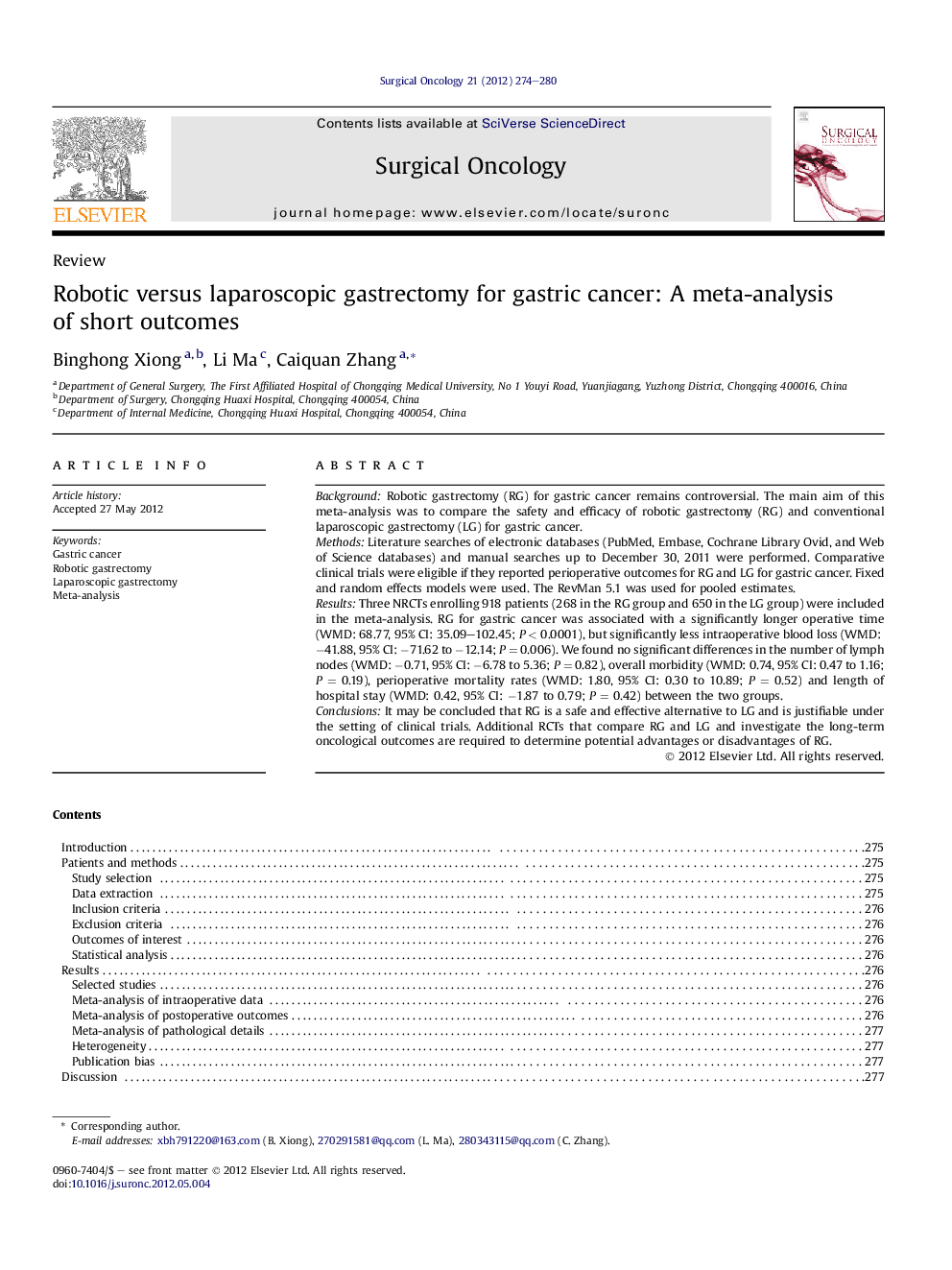| Article ID | Journal | Published Year | Pages | File Type |
|---|---|---|---|---|
| 3997777 | Surgical Oncology | 2012 | 7 Pages |
BackgroundRobotic gastrectomy (RG) for gastric cancer remains controversial. The main aim of this meta-analysis was to compare the safety and efficacy of robotic gastrectomy (RG) and conventional laparoscopic gastrectomy (LG) for gastric cancer.MethodsLiterature searches of electronic databases (PubMed, Embase, Cochrane Library Ovid, and Web of Science databases) and manual searches up to December 30, 2011 were performed. Comparative clinical trials were eligible if they reported perioperative outcomes for RG and LG for gastric cancer. Fixed and random effects models were used. The RevMan 5.1 was used for pooled estimates.ResultsThree NRCTs enrolling 918 patients (268 in the RG group and 650 in the LG group) were included in the meta-analysis. RG for gastric cancer was associated with a significantly longer operative time (WMD: 68.77, 95% CI: 35.09–102.45; P < 0.0001), but significantly less intraoperative blood loss (WMD: −41.88, 95% CI: −71.62 to −12.14; P = 0.006). We found no significant differences in the number of lymph nodes (WMD: −0.71, 95% CI: −6.78 to 5.36; P = 0.82), overall morbidity (WMD: 0.74, 95% CI: 0.47 to 1.16; P = 0.19), perioperative mortality rates (WMD: 1.80, 95% CI: 0.30 to 10.89; P = 0.52) and length of hospital stay (WMD: 0.42, 95% CI: −1.87 to 0.79; P = 0.42) between the two groups.ConclusionsIt may be concluded that RG is a safe and effective alternative to LG and is justifiable under the setting of clinical trials. Additional RCTs that compare RG and LG and investigate the long-term oncological outcomes are required to determine potential advantages or disadvantages of RG.
